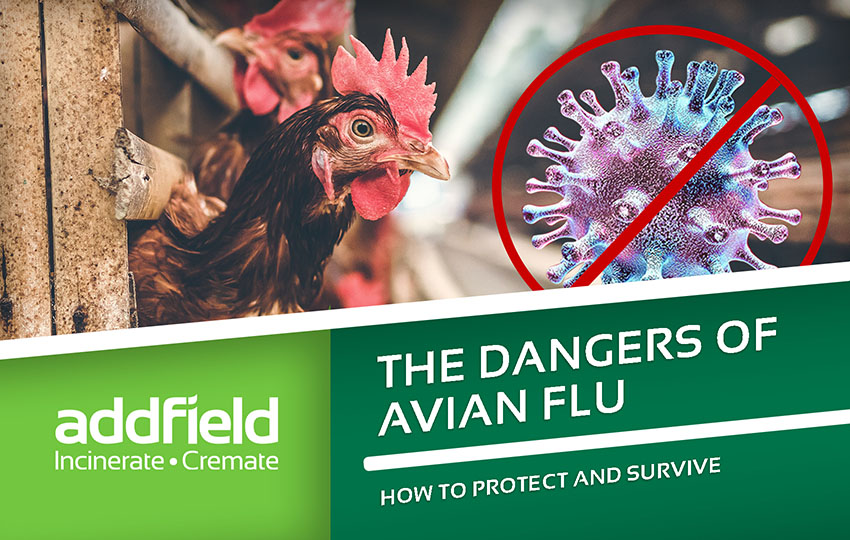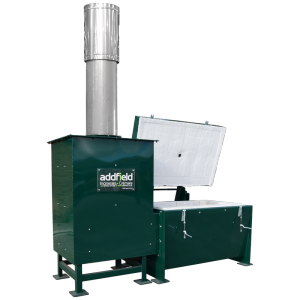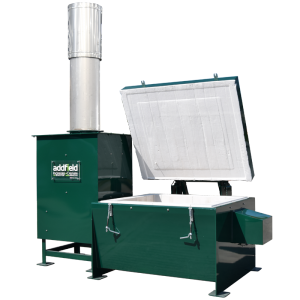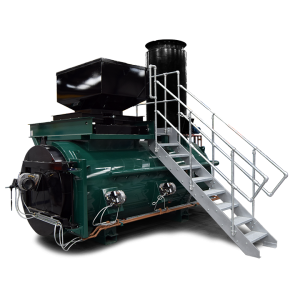
24/07/24
The dangers of Avian Flu Outbreaks across the UK.
As winter begins to settle the dangers of Avian Flu really hit home across the UK.
A state of emergency has been declared across the UK this winter by the UK Chief veterinary Office Christine Middlemiss as Avian Flu continues to spread across the country, affecting wild and captive birds alike.
Poultry farmers are being warned to be vigilant and to be prepared for what could be a potentially devastating endemic of the latest mutated strain of the H5N8 virus, which has been causing major difficulties across Europe recently.
The dangers of infection and the spread of this disease are becoming apparent through the clear impact that it is having on the wild bird population. Which are being noticeably affected and reports are increasing of multiple swan deaths being linked to this latest virulent strain of Bird flu that is sweeping across the UK.
Where are the latest Avian Flu outbreaks?
In Worcestershire, rescuers have taken care of dozens of dying birds and in Blackpool, many Swans and Cygnets have been found dead in Stanley Park. In Dawlish in Devon, postmortems have been completed on several swans and cygnets which confirmed the worst fears that the latest strain of Avian Flu H5N8 was responsible.
All of the sites affected in the UK are hundreds of miles apart, highlighting the ferocity of this latest strain. It’s believed to have been brought in by migrating wild birds travelling across Europe. This strain was responsible for the mass and widespread deaths of birds during 2016 and 2017.
To combat the fears that this virus could potentially wipe out massive numbers of chickens, turkeys, and other poultry stock across the UK, the government has declared a special Avian Influenza Prevention Zone in England, Scotland, and Wales. This zone coincides with the increase in responsibilities for farmers to manage their own biosecurity measures.
Avian Flu Outbreaks in chicken farms and broiler houses are being monitored and already tens of thousands of birds have been culled in broiler houses in Cheshire, Kent, Leicestershire, and Herefordshire.
Although most noticeable in the wild swan population this latest strain of Bird Flu has also been responsible for deaths in Pink Footed Geese, Buzzards, Curlews, Greylag Geese, and Canadian Geese, indicating just how virulent the disease can be crossing from species to species.
Although Wild birds often get the blame for spreading the disease, in most instances they are infected with the virus from coming into contact with infected poultry, which in many instances are being moved from region to region.
As always the importance of following strict biosecurity measures is a priority to poultry farmers. It’s required for farmers to keep strict distancing measures in place to prevent mixing between wildfowl and captive birds.
Across the UK in 2020, new regulations have recently been implemented affecting all poultry farmers. Regardless of whether they have hundreds or thousands of birds, all farmers are now legally required to adhere to the new biosecurity measures to protect themselves and their livestock.
Avian Influenza Exclusion zone
The most notable points of the New Avian Influenza Exclusion zone include:
- Keepers with more than 500 birds must restrict access to their site for non-essential visitors.
- Workers’ clothing and footwear must be changed before entering bird enclosures.
- Site vehicles must be cleaned and disinfected regularly.
- Make areas, where birds are kept, are uninviting to wild birds, for example removing wild bird food sources and placing netting over ponds.
- All livestock must be fed in enclosed areas
- Movement between enclosures must be kept to a minimum.
- Clean and Disinfect any contaminated areas.
In fact, if you are aware of the biosecurity measure in place on pig farms, you will see the similarity in many elements of the guidelines.
To maintain biosecurity, we would always recommend installing a dedicated agricultural incinerator onsite to ensure that farmers are able to complete many of these steps easily. By handling and disposing of fallen stock onsite rather than waiting for a collection agency removes risks of contamination spreading. Incinerating onsite removes the need for collection agencies, which can potentially bring infection onto your farms.
As such, we have already been in discussion with several of our regular customers on how to enforce biosecurity measures on-site alongside installing additional machines across more sites. In doing so, we aim to help them reduce the number of visitors and increase the speed and efficiency of disposing of any infected, fallen, and culled animals.
If you believe that you may have come into contact with or witnessed a bird with Avian Flu you must either contact DEFRA as a member of the public on 03459 335577. Alternatively, if you are a keeper of birds you should notify the APHA on 03000 200 301 as soon as possible.
For further information please visit the following links
How to spot avian flu – Click Here
Guardian article on avian flu impacts on Swans – Click Here
UK Government guidelines on avian flu – Click Here
New UK biosecurity regulations – Click Here
BBC reporting on UK broilerhouse infection – Click Here
To learn more about the agricultural range of incinerators from Addfield click here.
- British Designed.
British Built. - World leaders in
incineration technology. - Unrivalled build quality
& machine longevity. - Distributed to more
than 150 countries. - Environmentally
Responsible. - Trusted partner, over
40 years experience.






